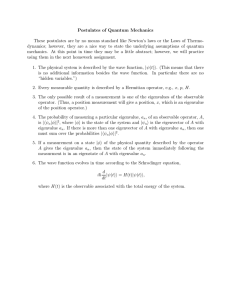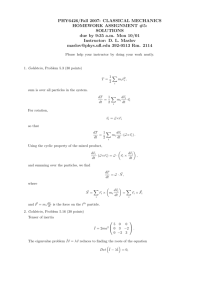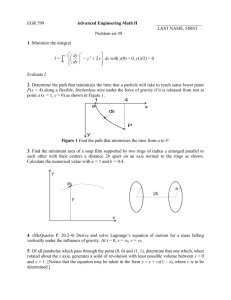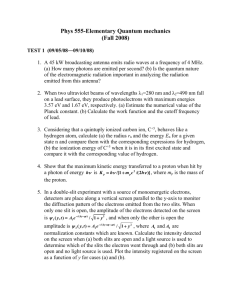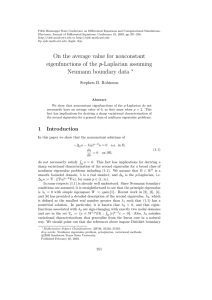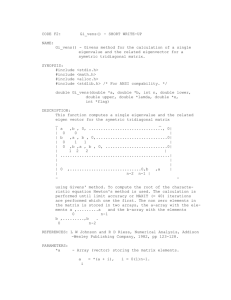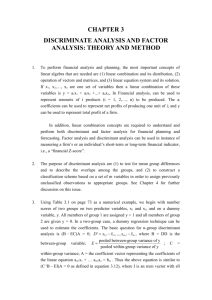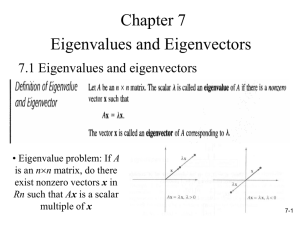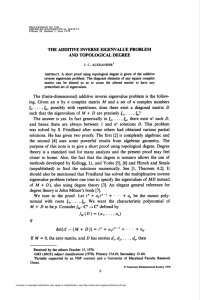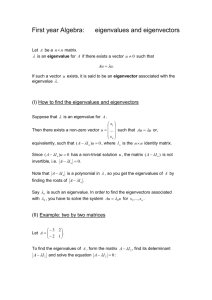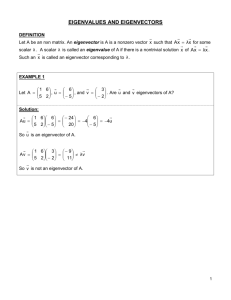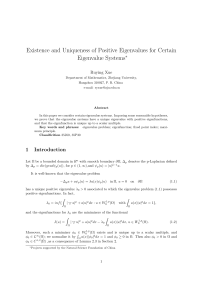Eigenvalue Equations: Exercises and Solutions
advertisement
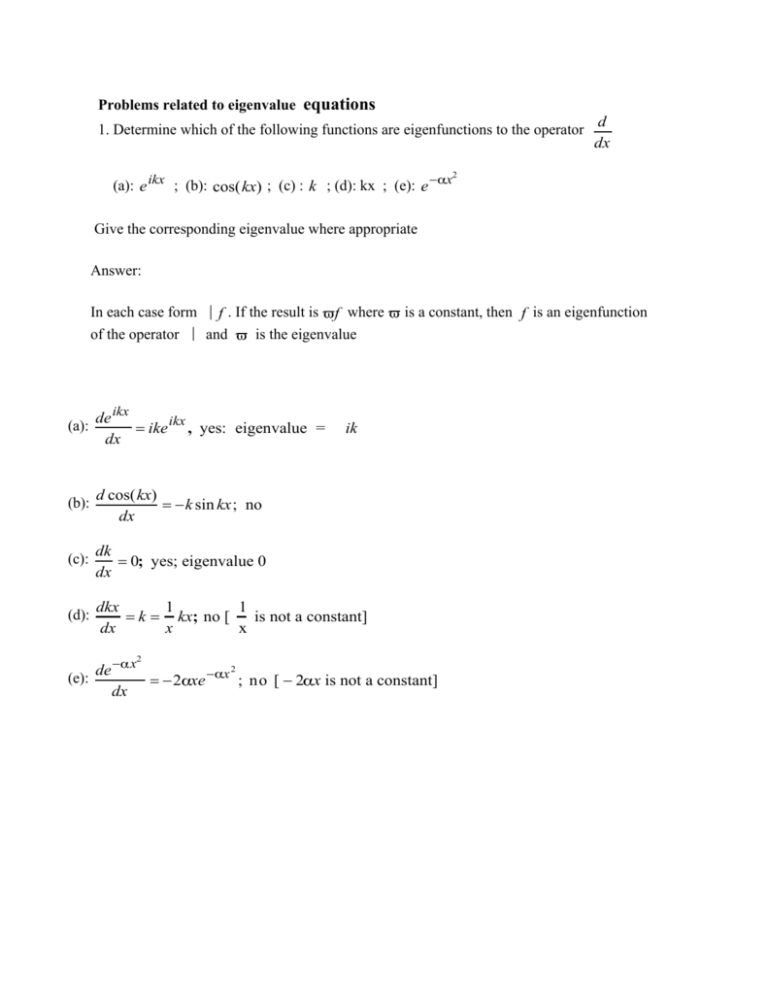
Problems related to eigenvalue equations 1. Determine which of the following functions are eigenfunctions to the operator d dx 2 (a): e ikx ; (b): cos(kx) ; (c) : k ; (d): kx ; (e): e − x Give the corresponding eigenvalue where appropriate Answer: In each case form Ωf . If the result is f where of the operator Ω and is the eigenvalue (a): de ikx ikx = ike , yes: eigenvalue = dx is a constant, then f is an eigenfunction ik (b): d cos(kx) = −k sin kx; no dx (c): dk = 0; yes; eigenvalue 0 dx (d): dkx = k = 1 kx; no [ 1 is not a constant] dx x x 2 de − x (e): = −2 xe − x ; no [ − 2 x is not a constant] dx 2 2. Determine which of th following functions are eigenfunctions of the inversion operator iˆ (which has the effect of making the replacement x → - x. Answer : ( a ) : x3 − kx ; ( b ) : coskx ; (c):x 2 + 3x −1. State the eigenvalue of iˆ when appropriate Operate on each function with iˆ ; if the function is regenerated multiplied by a constant, it is an eigenfunction of iˆ and the constant is the eigenvalue. ( b ) : f = coskx ; (c) iˆcoskx = cosk(-kx) = coskx = f Therefore, f is an eigenfunction with eigenvalue, +1 ( c ) : f = x 2 + 3x −1 iˆ (x 2 + 3x − 1 ) =x 2 − 3x −1 ≠ (constant)*f Therefor, f not an eigenfunction to iˆ 2 3. 1. Determine which of the following functions are eigenfunctions to the operator d dx 2 2 (a): e ikx ; (b): cos(kx) ; (c) : k ; (d): kx ; (e): e − x Give the corresponding eigenvalue where appropriate In each case form Ωf . If the result is f where of the operator Ω and is the eigenvalue is a constant, then f is an eigenfunction Answer: 2 ikx (a): d (e ) = − k2 e ikx , y e s :eigenvalue = −k 2 dx 2 2 (b): d cos(kx) = − k2 cos kx; yes : eigenvalue= - k 2 dx2 2 (c): d k = 0; yes; eigenvalue 0 dx 2 2 (d): d (kx) = 0 = 0(kx); yes eigenvalue 0 dx 2 2 − x2 d e 2 2 − x2 (e): = (−2 + 4 x )e ; no dx 2 d2 ; dx 2 d d2 , but not of . (b,d) are eigenfunctions of 2 dx dx Hence (a,b,c,d) are eigenfunctions of
